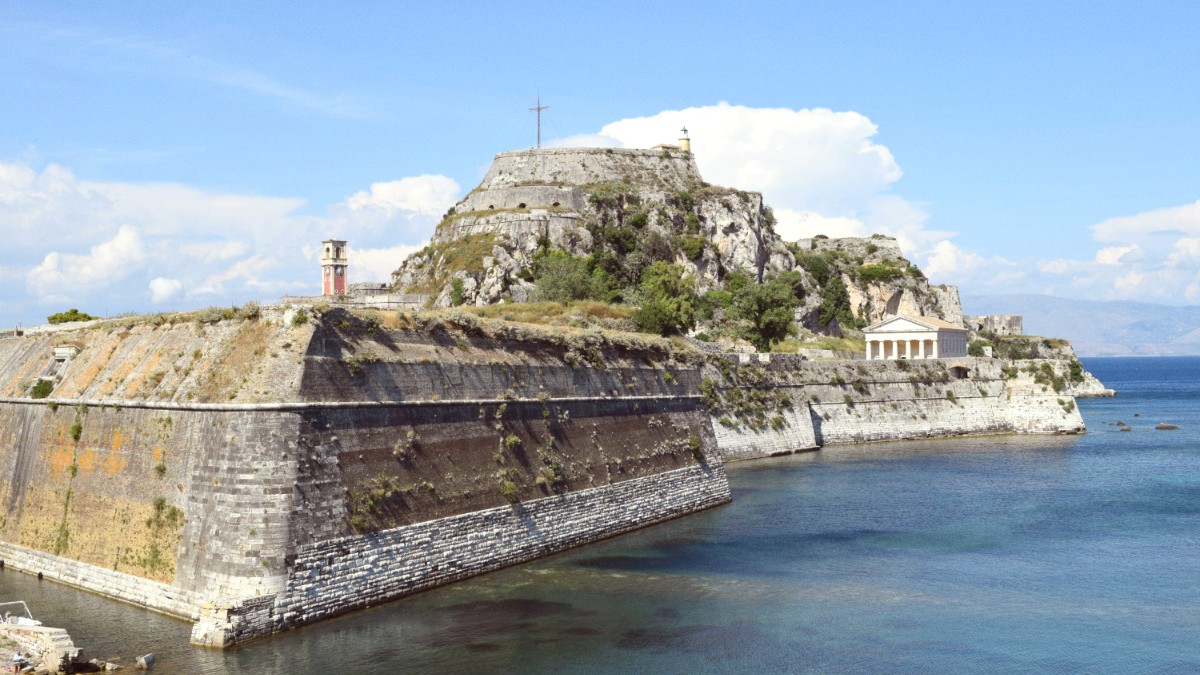
Greece
Corfu experiences a Mediterranean climate. Summers, from June to August, are hot and dry. Winters, from November to March, are mild and wet.
Spring (April-May) and autumn (September-October) bring pleasant, moderate temperatures.
Daily temperature variations and rainfall patterns.
Spring (April-May): 15-25°C (59-77°F). Summer (June-August): 25-35°C+ (77-95°F+). Autumn (September-October): 18-28°C (64-82°F). Winter (November-March): 8-15°C (46-59°F). Highest rainfall occurs in winter.
July-August
Hottest weather, ideal for swimming and sunbathing. All tourist services operate at full capacity. Lively atmosphere, numerous events.
Town becomes very crowded. Prices for flights and accommodation reach peak levels. Intense heat can make sightseeing uncomfortable.
May-June, Sep-Oct
Pleasant temperatures, warm enough for swimming. Fewer crowds compared to high season, prices are more moderate. Period for sightseeing and outdoor activities.
Some seasonal businesses may not be fully open in early May or might close by late October.
Nov-April
Fewest tourists, lowest prices, chance to experience authentic local atmosphere. Landscape looks lush and green.
Many tourist-oriented businesses close. Weather is cooler and wetter. Flight and ferry options become limited. Some attractions may have reduced hours or close.
The official currency in Greece is the Euro (€). ATMs are widely available throughout Corfu Town, specifically in the Old Town and New Town areas. Major credit and debit cards (Visa, Mastercard) are accepted in most hotels, restaurants, and larger shops. Smaller establishments, local markets, and some tavernas may prefer cash, so carrying some Euros is helpful.
Tipping is not obligatory in Greece but is appreciated for good service. Rounding up the bill or leaving 5-10% in restaurants and cafes for waiters is common. Tipping taxi drivers is not customary, though you can round up the fare to the nearest Euro. For hotel staff, a few Euros for good service is a kind gesture.
Utilize Corfu's efficient public bus system for island exploration and within Corfu Town.
Opt for street food, local bakeries, and traditional tavernas for meals. These bring authentic flavors at lower prices.
Purchase groceries from local supermarkets and prepare some meals yourself.
Explore free attractions like walking through the UNESCO-listed Old Town or enjoying Spianada Square.
Consider visiting during the shoulder or low season for lower prices on accommodation and flights.
Sunburn and heatstroke are common in summer due to the intense Mediterranean sun. Mosquitos are prevalent, especially during summer evenings. While rare, unfamiliar food or water can occasionally bring minor digestive upset.
Corfu Town has both public and private medical facilities. The main public hospital is the General Hospital of Corfu (Γενικό Νοσοκομείο Κέρκυρας). Private clinics often bring faster service and English-speaking doctors.
Corfu is generally a very safe destination. Petty crime, like pickpocketing, can occur in crowded tourist areas like the Old Town, especially during high season. Violent crime is rare.
Greece is a member of the Schengen Area.
MMR, DTP, Polio, Varicella (Chickenpox), and Flu shots.
Hepatitis A and B vaccinations are sometimes recommended, depending on travel plans and activities.
Consult a healthcare professional well before your trip for personalized advice.
Current Status:
As of late 2024, Greece has no specific health-related entry requirements beyond standard international travel health recommendations.
Always check the latest travel advisories from your government and the Greek authorities before your trip. There are no general entry fees for tourists upon arrival in Greece.
Source: Greek Authorities, Late 2024
Passport valid for at least three months beyond your intended departure date from the Schengen Area.
Passport must have been issued within the last 10 years.
You might also show proof of sufficient funds for your stay, an onward or return ticket, and confirmed accommodation bookings.
Corfu is generally very safe. Petty crime like pickpocketing can occur in crowded tourist areas, especially during high season. Violent crime is rare.
€40-€70/day. Hostel dorms, basic guesthouses. Street food, self-catering, local bakeries. Public transportation, walking.
€70-€150/day. Mid-range hotels, apartments, guesthouses. Local tavernas, casual restaurants. Public transportation, occasional taxis, scooter rental.
€150+/day. Boutique hotels, luxury resorts, private villas. Fine dining, exclusive restaurants. Private transfers, car rental, boat charters.